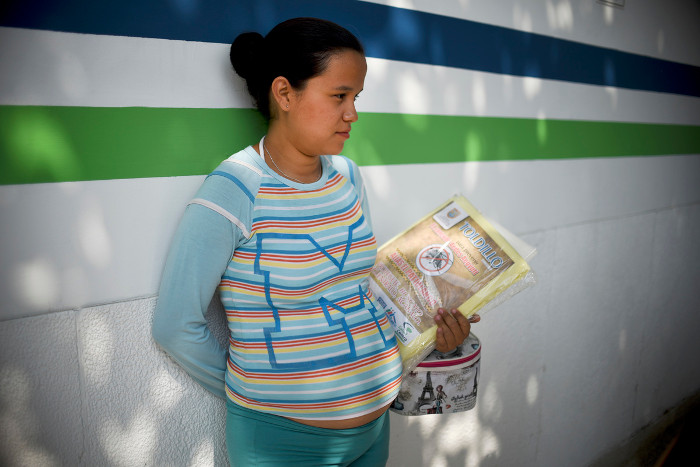WHO launched a global campaign to prevent Zika virus
Before the situation of Zika virus disease is booming rapidly, on February 16, the World Health Organization (WHO) launched a global campaign called "Framework for coping strategies and joint action plans". To guide countries around the world to take measures to prevent viral spread , as well as complete information about the malformations and complications to the nervous system that infants may encounter.
The campaign focuses primarily on calling for cooperation between partners, experts, as well as mobilizing a variety of financial resources to help countries strengthen Zika virus control, prevent related complications, limit the risk of infection, propose appropriate preventive measures, as well as health care for patients and especially research to early develop vaccines and drugs to help prevent and treat effectively.
Addressing UN member states within the framework of the United Nations Economic and Social Council Meeting (ECOSOC), Ms. Natela Menabde, Executive Director of the WHO Representative Office in New York, said. need $ 56 million to deploy the campaign.

A pregnant woman was given a mosquito net to prevent Zika virus infection in Cali, Colombia on February 10.(Photo: AFP / VNA).
Of the amount, $ 25 million was set aside to raise funds for a joint response between WHO, the WHO Regional Americas Office (AMRO) and the American Health Organization (PAHO); USD 31 million also aims to raise funds for joint action among important partners.
According to Ms Menabde, there are 34 countries that have recorded cases of Zika virus causing minor head defects in newborns, most of them are in the Americas and the Caribbean region, especially of which 7 countries have confirmed Many babies have small head disease.
Most worrisome is that Brazil, which has confirmed more than 4,700 suspected cases of small headaches, but only a quarter of them are thoroughly examined. Before the outbreak, the country had only 163 children suffering from this disease each year.
In related developments on the same day, Brazil's EU Ambassador Joao Gomes Cravinho said that 28 member countries pledged to contribute 10 million euros (equivalent to 10.7 million USD) for research. about Zika virus. This is a statement issued after the meeting of Brazilian Minister of Health Marcelo Castro and 24 ambassadors representing EU member states.
Zika virus belongs to the family of Flaviviridae virus, the infection is mediated by Aedes mosquitoes. The most common symptoms of viral infections are fever, conjunctivitis, headache, muscle and joint pain, rash.
Currently, the medical community is focusing on studying the association between this virus and the phenomenon of small abnormal heads and brains and Guillain-Barre syndrome causing neurological paralysis, even death in newborns.
- How to distinguish signs of Zika virus disease and dengue fever
- Korean girl infected with Zika virus after returning from Vietnam
- 5 basic knowledge everyone should know about Zika virus
- Singapore: Zika virus is transmitted in the country
- Avoid kissing, abstinence to prevent Zika virus
- Process of Zika virus testing in Vietnam
- What do people know about Zika?
- Zika virus in Brazil is similar to Zika virus in Asia
- WHO: The latest research on Zika virus is very worrying
- Detecting how Zika virus causes small head disease
- Common questions when Zika virus spread in Saigon
- WHO announces the global emergency of Zika virus
 Green tea cleans teeth better than mouthwash?
Green tea cleans teeth better than mouthwash? Death kiss: This is why you should not let anyone kiss your baby's lips
Death kiss: This is why you should not let anyone kiss your baby's lips What is salmonellosis?
What is salmonellosis? Caution should be exercised when using aloe vera through eating and drinking
Caution should be exercised when using aloe vera through eating and drinking Why can't the flu virus be eradicated?
Why can't the flu virus be eradicated?  Garlic does not kill coronavirus
Garlic does not kill coronavirus  Does the corona virus stick to clothes, shoes, hair, papers?
Does the corona virus stick to clothes, shoes, hair, papers?  Top 10 things doctors recommend for living with SARS-CoV-2
Top 10 things doctors recommend for living with SARS-CoV-2  Vaccines to prevent future strains of Corona virus
Vaccines to prevent future strains of Corona virus  What you need to know about the virus that has a 70% mortality rate in India
What you need to know about the virus that has a 70% mortality rate in India 